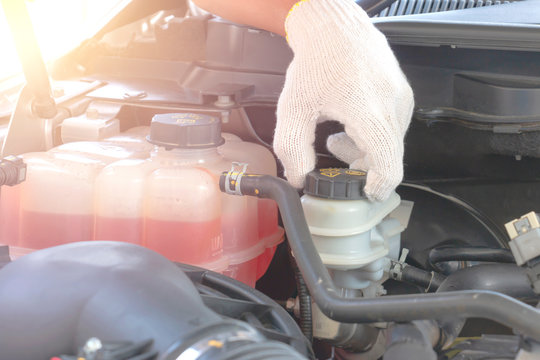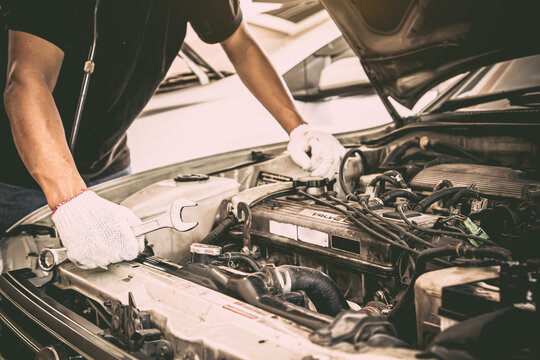Your car is more than just a means of transportation; it’s your daily companion, your trusty steed, and an extension of your personality. Whether you’re cruising down the highway or tackling rough terrain, your car’s performance is crucial to your overall driving experience. But as with any machine, regular maintenance is necessary to keep it running smoothly. In this blog post, we’ll explore essential car maintenance tips that can help maximize your car’s performance and keep it in top-notch condition. Are you ready to learn how to get the most out of your ride? Let’s dive in!
How Regular Maintenance Can Keep Your Car Running Smoothly
Car maintenance tips are essential for keeping your vehicle running smoothly and avoiding costly repairs down the road. Regular upkeep can extend the lifespan of your car, improve its fuel efficiency, and ensure your safety on the road.
One important aspect of routine maintenance is checking and changing fluids regularly. This includes oil, coolant, transmission fluid, power steering fluid, and brake fluid. Each type of fluid serves a different purpose in your car’s operation and should be checked according to manufacturer recommendations.
Another key component to maintaining a healthy engine is replacing filters as needed. Air filters help prevent debris from entering the engine while oil filters keep contaminants out of circulating oil. These car maintenance tips may seem minor but can have significant impacts on engine performance over time.
By following these simple car maintenance tips, you can enjoy reliable transportation for years to come.

The Importance of Checking Fluid Levels in Your Car
Checking fluid levels in your car is an essential part of regular maintenance. Low fluid levels can cause serious damage to your engine and other parts of your car. The most important fluids to check are oil, coolant, brake fluid, power steering fluid, and transmission fluid. To check the oil level, make sure the engine is cool and parked on a level surface. Remove the dipstick, wipe it clean, reinsert it, and then remove it again to check the level. The coolant level can be checked by looking at the overflow tank or radiator when the engine is cool. Brake fluid should be checked by looking at the reservoir under the hood. Power steering and transmission fluids have dipsticks that should be checked while the engine is running. If any of these fluids are low, top them off immediately or have a professional mechanic take a look.

Step-by-Step Guide to Changing Oil and Filters
Changing Oil and Filters
Regularly changing your car’s oil and filters is one of the most important maintenance tasks you can perform. It is recommended to change your car’s oil every 5,000 miles or as indicated in your owner’s manual, depending on the type of driving you do.
To change your car’s oil, start by parking it on a level surface and turning off the engine. Remove the old oil filter and drain plug to let all old oil flow out before replacing with new ones. Always remember to use appropriate tools when undertaking this task.
Additionally, consider changing other filters like air filters at least once a year or after driving through dusty areas. A dirty air filter may cause reduced fuel economy, power loss, or even affect engine performance.
Skipping regular changes will not only reduce fuel efficiency but also lead to expensive engine damages that could have been avoided with proper maintenance practices such as timely replacements of parts like oil & fuel filters for optimal vehicle performance over time.

Maintaining Your Brakes: Signs You Need New Pads or Rotors
Understanding the Importance of Brake Maintenance
Regular brake maintenance is crucial for the safety of both you and your car. Neglecting your brakes can lead to costly repairs and even accidents. Brake pads and rotors are the two main components that need to be checked regularly. Worn brake pads can cause a screeching noise when you apply the brakes, while worn rotors can cause a vibration or pulsation in the brake pedal. It’s important to have your brakes inspected by a professional mechanic at least once a year or every 12,000 miles. Don’t wait until it’s too late – stay on top of your brake maintenance to ensure a safe and smooth ride.
Signs that Indicate You Need New Brake Pads or Rotors
car maintenance tips to keep your brakes in top condition include knowing when it’s time to replace your brake pads or rotors. Two key indicators that it’s time for new brake pads are squeaking or grinding noises when you apply the brakes and a noticeable decrease in stopping power. If you feel vibrations or pulsations when braking, this could be a sign that your rotors need to be replaced. It’s important to address these issues promptly, as worn brake components can compromise your safety on the road. Regular inspections and maintenance can help prevent costly repairs down the line.
How to Inspect and Replace Your Car’s Brake Pads and Rotors
Inspecting and replacing your car’s brake pads and rotors is crucial to ensure safe driving. If you hear squeaking or grinding noises while braking, it’s likely time for new pads. Additionally, if your car vibrates or pulls to one side while braking, you may need new rotors as well. To inspect the brake pads and rotors, remove the tire and visually check for wear on the pad surface and any cracks or grooves on the rotor surface. If replacement is necessary, make sure to use high-quality parts that meet manufacturer specifications. Always have a professional mechanic perform replacements if you’re not confident in doing it yourself.
Tips for Maintaining Your Brakes to Maximize Performance
Regular maintenance of your car’s brakes is crucial for ensuring maximum performance and preventing accidents on the road. Brake pads should be checked every 12,000 miles or as recommended by your vehicle manufacturer. Signs that you may need new pads include squeaking or grinding noises when braking, a soft brake pedal, or longer stopping distances than usual. Additionally, poorly maintained rotors can cause uneven wear on the brake pads and decrease overall stopping power. To avoid issues, have your brakes inspected regularly by a professional mechanic to diagnose any potential problems early on and ensure the longevity of your vehicle’s braking system.

Avoiding Tire Wear: Tips for Proper Inflation and Rotation
Proper inflation and rotation of your car’s tires are essential for avoiding premature wear and tear. Check your tire pressure at least once a month, and always before long trips. Use a tire pressure gauge to ensure that the pressure matches the manufacturer’s recommended level, which can be found in your owner’s manual or on the inside of the driver’s side door. Regularly rotating your tires can also help extend their lifespan. The front tires tend to wear faster than the rear ones, so rotating them every 5,000 to 7,000 miles can help even out the wear. Additionally, make sure to have your wheels aligned every year or if you notice any signs of uneven wear. By taking these simple steps, you can keep your tires in good condition and avoid costly replacements down the road.
Keeping Cool in Hot Weather: Top Tips for A/C Maintenance
Regularly Check and Clean Your A/C Filters
Regularly check and clean your A/C filters to ensure that your car’s air conditioning system is running efficiently. Over time, the filters can become clogged with dirt and debris, which can restrict airflow and cause the A/C to work harder than it needs to. This can lead to increased fuel consumption and wear and tear on the system. Replacing the filters is a simple task that can be done at home with a few basic tools. Check your car’s owner manual for specific instructions on how often to replace the filters, but generally, it’s recommended to do so every 12,000-15,000 miles or once a year.
Keep Your A/C System Properly Charged
To keep your car’s A/C system running smoothly, it’s important to keep the refrigerant level properly charged. Over time, refrigerant can leak from the system and cause the A/C to blow warm air. If your car’s A/C isn’t as cold as it used to be, it may be time for a recharge. This should typically be done every 2-3 years or more frequently if you notice decreased performance. It’s also crucial to have any leaks repaired before adding new refrigerant since this will only temporarily solve the issue. Ignoring low refrigerant levels can lead to further damage and expensive repairs down the line.
Inspect and Maintain A/C Components
Regular air conditioning maintenance is essential to ensure your car stays cool during hot weather. Start by inspecting the A/C components, including the compressor, condenser, evaporator, and hoses for any visible leaks or damage. Then check the refrigerant level using a pressure gauge to make sure it’s within the recommended range. If it’s low or there are leaks, have a professional mechanic address it immediately to prevent further damage. Also, replace the cabin air filter regularly as clogged filters can restrict airflow and strain the system. By maintaining these key components of your car’s A/C system, you’ll be able to beat the heat and extend its lifespan!
Schedule Professional A/C Maintenance
Professional A/C maintenance is crucial to ensuring that your car’s cooling system functions properly, especially during hot weather. During a professional service, an experienced technician will check and clean the evaporator and condenser coils, replace or recharge refrigerant levels, inspect and tighten loose connections, test the compressor, and ensure proper blower fan operation. Regularly scheduling this essential maintenance service can maximize your car’s performance by preventing costly breakdowns due to overheating or A/C failure. Don’t wait until you feel like something is wrong; preventative A/C maintenance can be the difference between staying comfortable on long drives in hot weather and sweating it out on the side of the road due to a malfunctioning cooling system.
Electrical System Checks: Battery Care and Alternator Health
Battery care and alternator health are essential components of your car’s electrical system. A dead battery can leave you stranded, while a faulty alternator can cause your car to stall or not start at all. To ensure your battery stays healthy, regularly check the terminals for corrosion and clean them if necessary. Also, keep an eye on the battery’s water level and top it off if needed. As for the alternator, it’s responsible for charging the battery and powering the car’s electrical systems. Signs of a failing alternator include dimming headlights or dashboard lights, a whining noise coming from under the hood, or a dead battery even after it’s been replaced. If you notice any of these signs, have your alternator checked by a professional mechanic to avoid further damage to your car’s electrical system.

Preventative Measures Against Rust and Corrosion
Rustproofing is the most effective way to protect your car from rust and corrosion. Applying a protective coating on the undercarriage can prevent moisture, salt, and other elements from corroding the metal components. This process involves cleaning the underbody first before applying a rust inhibitor.
Another preventative measure is regular washing and waxing. Salt, dirt, and debris can accumulate in hard-to-reach areas such as fenders, wheel wells, and bumpers. Washing your car frequently with soap and water can remove these contaminants before they cause damage. Waxing adds an extra layer of protection by sealing out moisture.
It’s also important to check for any signs of rust or corrosion regularly. If you notice surface rust forming on any metal surfaces of your car, take action immediately to prevent it from spreading further.
With these simple preventative measures against rust and corrosion, you can keep your car looking new for years to come while avoiding costly repairs down the road.

Common Misconceptions About Car Maintenance & Repair
Common misconceptions about car maintenance can lead to costly repairs or even dangerous situations. One such myth is that you need an oil change every 3,000 miles. In reality, modern engines and oils can last much longer than that. Another misconception is that washing your car too often will damage the paint job. However, leaving dirt and grime on the exterior for too long can actually cause rusting and other damage over time.
Another common mistake is only fixing problems when they arise instead of regular preventative maintenance. Waiting until a part breaks down completely can end up being more expensive in the long run and put you at risk while driving. It’s also important to note that skipping recommended services outlined in your owner’s manual can void any warranties or coverage.
Stay informed by consulting with trusted professionals and doing research before making decisions about your vehicle’s care. By debunking these myths, you’ll be able to save money on unnecessary repairs and keep yourself safe on the road.
In conclusion, taking care of your car is essential to keep it running smoothly and efficiently. Regular maintenance, checking fluid levels, changing oil and filters, maintaining brakes, tires, A/C, electrical system, and preventing rust and corrosion are all important aspects of car maintenance. By following these tips, you can save money on repairs and extend the life of your vehicle. Don’t fall for common misconceptions about car maintenance and repair – stay informed and take action to keep your car in top shape.
If you found this article helpful, be sure to check out our other content for more valuable tips and information on car maintenance. Remember, a well-maintained car is a happy car!

